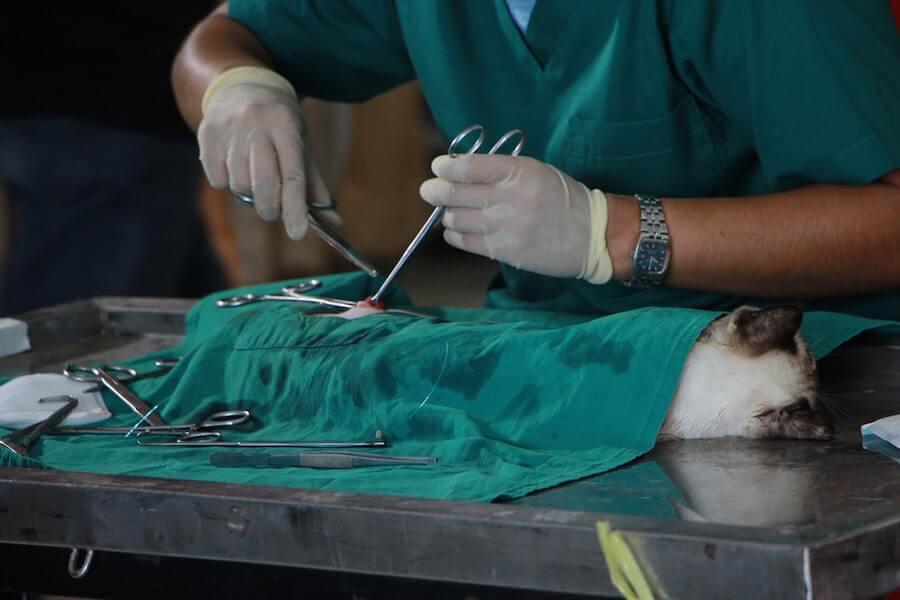There are many good reasons to pursue a career in veterinary medicine. One of the most popular and rewarding career options for animal lovers, perks include:
- Getting to help animals on a daily basis
- No two days are the same. One minute you could be dealing with a traumatic injury, the next a chronic disease, and the next performing a routine checkup.
- A good salary – according to Open Universities the average Australian veterinarian earns $75,000 p.a.
- Community interaction – getting to meet members of the community from all walks of life
- Being your own boss – while you will likely start out working for an established clinic, you always have the option of starting your own practice later on
- You get to utilise your problem-solving skills every day
- A lifetime of learning
- Working with other animal lovers
But before you think about a career as a veterinarian, you need to ask yourself a series of questions. These include:
What do vets do?
Veterinarians look after the health and wellbeing of animals, diagnosing, treating and helping to prevent common animal illnesses and injuries. Many vets choose to concentrate on one particular field, such as small animals and pets, horses or livestock. Many also focus on specific interests within these fields, such as surgery, medicine and dentistry.
As a vet, it is crucial that you keep your skills up-to-date and relevant, continually monitoring the latest clinical and scientific developments via continuing education activities.
What qualities do I need to possess to become a vet?
Vets not only need to have a genuine commitment to the well-being of the animals, but to the concerns of animal owners. You will need to know how to communicate effectively and understand, empathise and respect all types of creatures and people. Vets also need to be adaptable, in order to keep up with the ever-changing industry.
All veterinarians need outstanding competency in math, science, language and research.
How do I become a vet?
Becoming a vet is no easy task and you will need to be prepared for years of study. A veterinary science degree takes around five or six years of study, depending on the university you use and the schedule you set. In Australia, there are seven universities offering undergraduate veterinary science courses:
- Charles Sturt University (Wagga Wagga NSW)
- James Cook University (Townsville QLD)
- Murdoch University (Perth WA)
- University of Adelaide
- University of Melbourne
- University of Queensland
- University of Sydney
These seven veterinarian science schools have excellent reputations and help prepare students for a demanding yet rewarding career. The Australian Vet Schools cover a number of different skills required from a vet, including the treatment of animals medically and surgically, the administration and prescription of drugs, analgesics, general and local anaesthetics. Entry to the occupation of veterinarian is generally through a Bachelor’s degree or higher qualification. Other universities also offer veterinary courses, but attending one of these may alter the time in which it takes to get your degree.
What kind of Bachelor’s degree is required?
Students can apply for a position into a veterinary science course after completing any kind of Bachelor’s degree at a recognised tertiary institution. You will need to have studied certain pre-requisite subjects during your course of study.
Your Bachelor’s degree must be completed in the year prior to commencing your Veterinary Science course. You may apply for enrollment during your final year of study, but your acceptance won’t be confirmed until you have proof of your completed degree requirements.
Entry into the Australian Vet Schools is highly sought after, attracting a wide range of excellent applicants. It’s essential that you prove yourself as a committed, passionate, and exceptional student. It is therefore recommended that you aim to complete a minimum four weeks of hands-on animal experience, which will not only show you are eager to excel in the industry, but will help you determine whether or not this industry really is for you.
Applicants that can demonstrate the following will be highly regarded:
- Breadth of experience across a variety of species or depth of experience in particular specimens
- Research experience
- Hands-on experience spanning more than four weeks
- Rural background
What continued study is expected?
Graduation is only the beginning of a life-time commitment to continuing professional development. Universities offer postgraduate training in many disciplines and continuing veterinary education is available from a number of sources, including the Australian Veterinary Association’s (AVA) conferences and events.
What happens once qualified?
A person must not perform a restricted act of veterinary science in Australia unless the person is a veterinary practitioner. Only suitably qualified persons who are registered are able to represent themselves to be veterinary practitioners and recover fees or charges for performing animal services.
If you have specialised in livestock and wish to be an Australian Government accredited veterinarian that undertakes shipboard work, you must also be an Australian citizen.
Liz Walden
Latest posts by Liz Walden (see all)
- Assessing your insurance risks - October 29, 2021
- 4 questions to ask about professional indemnity insurance - October 29, 2021
- Public Liability vs. Professional Indemnity: What’s the difference? - April 26, 2021










Leave A Comment